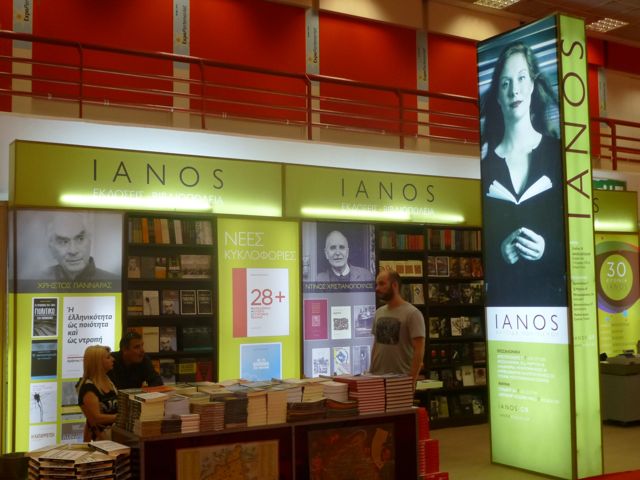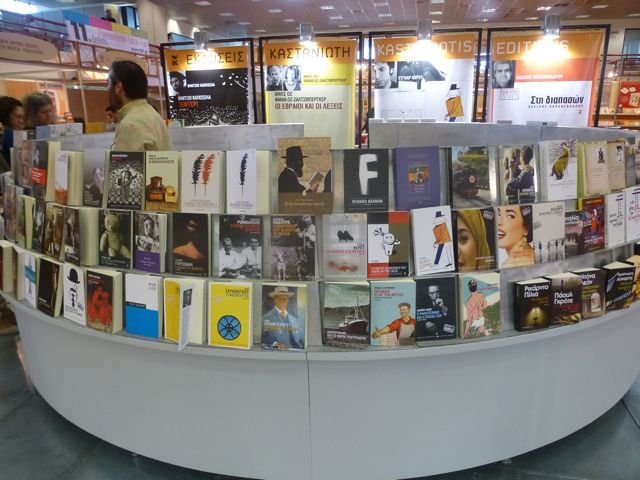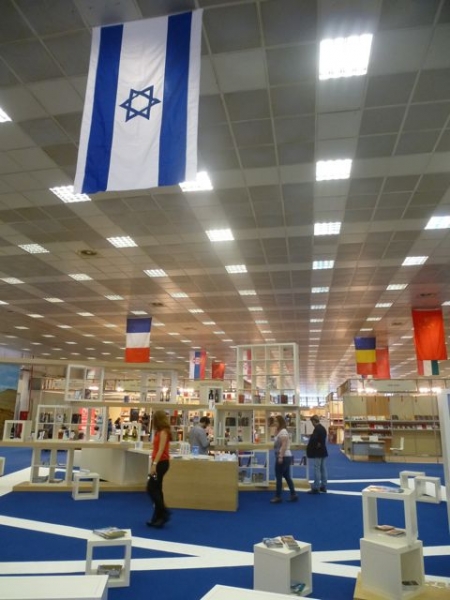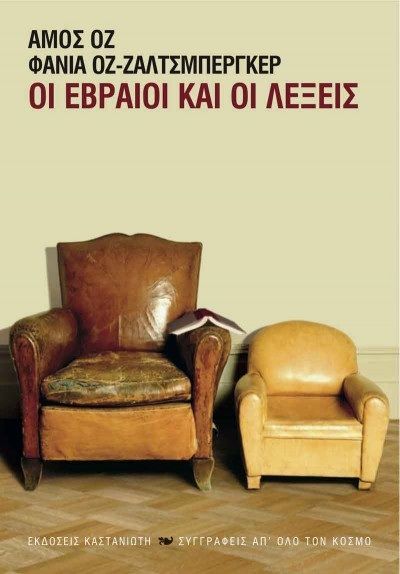Photos: the author
Zdravka Mihaylova, for GRReporter exclusive
Thessaloniki is a city at the crossroads and has a multicultural history. Inhabited by different ethnic communities, it was no coincidence that it was called "Madre de Israel" (Mother of Israel). A metropolis of Sephardic Jewry until the deportation of about 50,000 members of its community to the death camps in 1943 and inhabited by Muslim Turks, Bulgarians, Armenians and other nationalities, today it is a European megalopolis, an intersection where contemporary arts meet. Bearing the colourful mark of the past and preserving the monuments testifying to its multinational appearance over the centuries and to its urban culture, today it has the living pulse of a student city with several universities. Not surprisingly, it is the point in the bustling centre of the Balkan Thermaic Gulf where the International Book Fair every year gathers together publishers and professionals operating in the field of book production, presentation and distribution as well as writers, translators, readers and others.
This year, its eleventh edition (from 8 May to 11 May) was organized for the first time by the Hellenic Foundation for Culture. This marked both the beginning of the institutional cooperation with the National Book Centre, which is the organization that founded the fair and supported its successive editions over the past ten years, and the incorporation of the fair in its structure. Co-organizers of the book festival near the White Tower were Thessaloniki International Fair-Helexpo, the Hellenic Federation of Book Publishers and Sellers and Thessaloniki Municipality.

In his address at the opening of the book fair, President of the Hellenic Foundation for Culture and Professor at Panteion University Christoforos Yialouridis underlined the successful decade-long history of the book fair and paid particular attention to the following: the dynamic participation of Greek and foreign publishers, the fair programme, parallel activities and discussions, the poetry festival that, from a Balkan event in 2012 and 2013, this year turned into an international one (Bulgaria was represented by poet Yordan Eftimov), the discussions on literature, humanities and arts, bringing to the foreground the "fan" of cultural richness and diversity.
He said, "All these events are not only an expression of the will of the participants for a cultural dialogue but also a sign of the flourishing of Greek culture that is an integral and visible power of the country, opposing the crisis and the economical and political problems that we have encountered in recent years." With 218 participants (publishers, cultural organizations, foundations, embassies, cultural institutions from Greece and abroad), including 14 foreign countries, the majority of which are from the Balkans (Bosnia and Herzegovina, Turkey, Romania, Serbia, Croatia, Slovakia, Germany, Indonesia, France, Iran, Italy, China [23 publishers], Korea) the absence of Bulgaria from this centre for spiritual communication was bewildering and regrettable. It was represented neither by publishers nor even by a joint stand of the Ministry of Culture that used to house a collective participation in previous years, but by individual participants. One was Y. Eftimov in the Poetry Festival, traditionally organized by the Union of Greek Writers and the other Hellenist interpreter Zdravka Mihaylova, who took part in a discussion entitled "Translating Grecism: promotion strategies for Greek literature abroad", featuring 7 translators in various European languages. The focal part of this year's fair edition was Israel. A press release of the National Book Centre described its participation as a "historic event, emphasizing the strengthening of Greek-Israeli relations, especially in the cultural sphere."
The two main messages of the events prepared by the focal country were related to the Holocaust and the Israeli-Arab conflict. The live meetings with the audience involved authors such as Etgar Keret, Zeruya Shalev, Eyal Meged Yehuda Koren and Eilat Negev as well as university professors and academics such as Dina Porat and Fania Oz. The poster of the fair presented world famous Israeli writers (along with the covers of their Greek editions) such as Amos Oz, Abraham Yehoshua, David Grossman, although they themselves were not present. Journalist Yaron Enosh, who loves Greece and its culture and is the producer of a show for Greek music, brought together a large audience to share "Stories and Thoughts from Israel." Together with Professor of International Relations at Panteion University and President of the Hellenic Foundation for Culture Christoforos Yialouridis, Israel's ambassador to Greece, Arye Mekel participated in a discussion moderated by Yaron Enosh on "Prospects and Challenges in the Eastern Mediterranean today: the dynamics of Greek-Israeli relations". Gourmet, journalist and broadcaster Gil Hovav, who is popular not only in his own country, prepared a festive dinner of Israeli dishes, presenting the stunning fusion cuisine of this small strip of biblical land populated by people returning to it from the four corners of the world. Prominent people and politicians from Thessaloniki were invited to the dinner and Hovav presented the niceties of Israeli cuisine to his companions at the table and spoke on "Gastronomy and Literature" before the audience.
We learned that Israel is particularly interested not only in contemporary Greek authors such as Rea Galanaki, Lena Divani, Kostas Mourselas, but also Petros Markaris, who is one of the most famous crime writers in Europe, George Yatromanolakis, Christos Homenidis, Apostolos Doxiadis, Evgenios Trivizas, and that their translation in Hebrew is based on the Greek original.

The presence of, and conversation with, Professor of Modern History Dina Porat, who runs "Yad Vashem", the Israel Museum and Institute to perpetuate the memory of the victims of the Holocaust, were memorable too. Her response to the deniers of the Holocaust was a provocation for consideration. She called this "a significant Christian crime", stressing that if one accepts this truth, then this person has no choice but to fully reconsider his or her own self and thus humanity. And if one does not accept it, one keeps his or her own world intact and continues to apply the same stereotypes of Jews."
Journalist of "Eleftherotipia" newspaper Vassilis Kalamaras described the booth of the focal country as a "Minimalist Israel in Mediterranean colours." In an open space that was accessible from all sides, it had a double face: on one side, there was a photo of Jerusalem and the other was decorated with a view of a popular tourist beach. Israel presented itself as a dynamic and self-confident country radiating Mediterranean colours and flavours. A small but sophisticated pocketbook contained all titles by Israeli authors that had appeared in the Greek book market.
The presentation of the country took place in the presence of authors of the book "Israel Start up Nation" Dan Senor and Saul Singer and showed some data about Israel. After the US, for example, Israel has the highest number of NASDAQ companies listed on the stock exchange, more than any other country in the world, including India, China, Korea, Singapore and Ireland. Israel holds the absolute lead in the world in terms of resources put into research and development. The economic growth of Israel is very fast compared to the average growth of economically developed countries in the world through most of the years after 1995. "Even the wars repeatedly led by Israel did not adversely affect its economic development. In the six years after 2000, Israel was affected not only by the bursting of the technology bubble in the world but also by the most intense period of terrorist attacks in its history as well as by the second war in Lebanon. However, the share of Israel in the global capital market did not decline but more than doubled, from 15% to 30%. Stock prices in Tel Aviv were at higher levels on the last day of the war in Lebanon than on the first as was the case after the three-week military offensive in Gaza in 2009, reads the brochure accompanying the presentation of the book.
 The book by Senor and Singer tries to offer a key to this mystery. Why is it Israel and not another country? One possible explanation could be that hardships and difficulties, and need, give rise to ingenuity. Other small countries living in a hostile neighbourhood or surroundings, such as South Korea, Singapore and Taiwan can boast of equally impressive development statistics but none of them has formed such a culture of creative initiative, which can be compared to that of Israel.
The book by Senor and Singer tries to offer a key to this mystery. Why is it Israel and not another country? One possible explanation could be that hardships and difficulties, and need, give rise to ingenuity. Other small countries living in a hostile neighbourhood or surroundings, such as South Korea, Singapore and Taiwan can boast of equally impressive development statistics but none of them has formed such a culture of creative initiative, which can be compared to that of Israel.
Some suggest that this is due to a very Jewish ingredient that acts as a driving force. The idea that Jews are "smart" is deeply rooted in the Western world. The authors report that they themselves have established this. "When we mentioned to someone that we were writing a book about why Israel is such an innovative nation, many people responded by saying, "Well, it is very simple, Jews are smart, so it is not surprising that Israel has innovative thinking." However, associating the success of Israel with a stereotype further blurs the situation instead of clarifying it. In general, the idea of a unifying Jewish identity, be it genetic or cultural, seems at least suitable for a nation that, albeit small, is among the most heterogeneous nations in the world. The small population of Israel consists of seventy different nationalities. A Jewish refugee from Iraq and a Jewish immigrant from Poland or Ethiopia do not have a common element such as language, education, culture and history, at least not in the last two millennia. Irish economist David Makuiliamz states that "Israel is the opposite of a one-dimensional Jewish state ... It is a monotheistic melting pot of a diaspora, each mosaic piece of which has brought its own culture, language and customs from around the world".
Despite the fact that a common religious scripture and tradition, and a common heritage of persecution are certainly important, in the wake of the establishment of Israel it was not at all certain if a set of non-homogeneous populations would be able to create a functioning state, and it was even less certain whether it would excel, more than any other area, in collective action and innovative practices.
 One of the most anticipated meetings in Thessaloniki, on the part of the audience, was the one with the Greek edition of the joint work of Amos Oz and his daughter Fania Oz entitled "Jews and Words" (Kastaniotis Publishing House). It was presented in the presence of the latter of the famous tandem of authors. It begins citing poem "The Jews" by famous Israeli poet Yehuda Amichai: "The Jews are not a historical people/and not even an archaeological people, the Jews/are a geological people with rifts/ and collapse and strata and fiery lava./Their history must be measured/on a different scale." Geological race, this unique metaphor, does not refer exclusively to Jews. It could be true for other nations too. However, it is a clear echo from the thesis of Oz father and daughter regarding Jewish continuity as primarily textual. "Historical", ethnic, genetic Jewry consists of a tradition of rifts and collapses. It is a landscape of a geological disaster," they said. "Could we trace our origin to the Jews of Galilee and the Roman era?" ask the authors. "We could hardly do that. Such a blood mixture, of proselytes but also of enemies, of the emblematic Cossacks, probably runs in our veins. On the other hand, geneticists tell us today that some of our genes have been following us in this ordeal for a long time." Although this fact may sound interesting, it is not among the arguments of their book. Their thesis is that there is a Jewish line of origin and the temporal continuity and sequence of the events that determine the children of Israel can be confirmed. However, the authors write, "the different measurement scale" that defines us "is made of words". This is the issue that they examine in their book, namely the Jewish continuity as primarily textual.
One of the most anticipated meetings in Thessaloniki, on the part of the audience, was the one with the Greek edition of the joint work of Amos Oz and his daughter Fania Oz entitled "Jews and Words" (Kastaniotis Publishing House). It was presented in the presence of the latter of the famous tandem of authors. It begins citing poem "The Jews" by famous Israeli poet Yehuda Amichai: "The Jews are not a historical people/and not even an archaeological people, the Jews/are a geological people with rifts/ and collapse and strata and fiery lava./Their history must be measured/on a different scale." Geological race, this unique metaphor, does not refer exclusively to Jews. It could be true for other nations too. However, it is a clear echo from the thesis of Oz father and daughter regarding Jewish continuity as primarily textual. "Historical", ethnic, genetic Jewry consists of a tradition of rifts and collapses. It is a landscape of a geological disaster," they said. "Could we trace our origin to the Jews of Galilee and the Roman era?" ask the authors. "We could hardly do that. Such a blood mixture, of proselytes but also of enemies, of the emblematic Cossacks, probably runs in our veins. On the other hand, geneticists tell us today that some of our genes have been following us in this ordeal for a long time." Although this fact may sound interesting, it is not among the arguments of their book. Their thesis is that there is a Jewish line of origin and the temporal continuity and sequence of the events that determine the children of Israel can be confirmed. However, the authors write, "the different measurement scale" that defines us "is made of words". This is the issue that they examine in their book, namely the Jewish continuity as primarily textual.
They use as evidence the Jewish example of a discussion between generations, between a parent and son, and a teacher and student. The boys from the Israeli people really are exposed to the written word at a very early age and this practice was not a privilege for its wealthy or privileged members. The ten-year studying of the scriptures was mandatory from the age of three to thirteen, when the boy enters into social and biological adulthood and becomes a member of the community. The duty was imposed on the male offspring and their parents, and the entire process was often managed and funded by the community. The intensive studying began at the earliest possible age (they gave the children sweets, while they were studying the initial aleph-bet-gimel). The authors write, "We do not have any historical evidence for illiterate Jewish communities in antiquity or in the Middle Ages."
Since the dawn of history, Jews have relied on written texts. The means by which the ancient history was handed down to young descendants were books. The great history and the categorical imperatives of Judaism were handed down from generation to generation on tables, tiles covered with writing, papyruses, parchments, etc. "Make yourself a rabbi," advises Mishna. Rabbis and people involved in teaching are often an object of esteem in the Jewish tradition as written by the authors of "Jews and Words". Famous pairs of rabbis and their students play an important role in the tradition, including Hillel and Yochanan ben Zakai or Akiva and Meir.
Moreover, this is not a closed system of education - students are called upon to become teachers one day too. The father-son and student-teacher pairs are of a too Freudian construct. Jewish tradition allows questioning of competent persons and encourages students to rebel against their teacher, disagree with him and even to reject him to a certain degree. Fania and Amos Oz comment on this purely Freudian point, which is quite rare for traditional cultures, stating that, to some extent, it is also the key to intellectual progress. "Paradoxical as it may sound, Jewish rabbis have taught the world to innovate and modernity in some sense, they have taught it a lesson about the benefits of confrontational training, of the rebellion of each generation against the previous one and of rethinking the established traditional truths. We assume that Marx, Freud and Einstein would put their signatures under the last three references," writes the Amos-Fania Oz tandem.